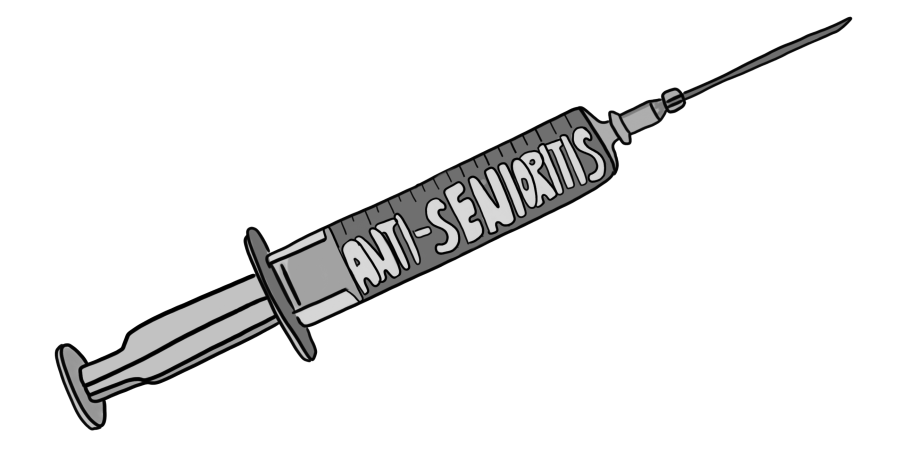Senioritis, noun. An illness afflicting second semester seniors that renders them incapable of completing their work or engaging in their classes as usual. Our school seems to have a particularly dramatic strain of it spreading around.
Jan. 18 is a time many seniors seem to have mentally designated as a time of mass relief. The end of first semester marks the end of years of hard work and the beginning of a semester of slacking. As grades begin to have less weight in college admissions, seniors take time with friends, go to more parties and relax. While all of these are independently good things, they often come at the expense of schoolwork.
The culture of senioritis represents a failure both of students and faculty in this community. The mass movement away from school implies an ugly truth: students only work in school to present well in college admissions. If such is true, our mission of a joyful pursuit seems like an abject failure.
Teachers, deans, administrators and students should work to focus their ambitions more on meaningful scholarship. Students should work for genuine interest rather than in pursuit of higher GPAs. Teachers should focus on meaningful feedback beyond percentages. Students should examine their mastery of a subject aside from year-end grades and take classes they like, not shying away from rigor or pursuing it just for its value on a transcript. Instead, we should use our school’s strong academic support as an opportunity to take more academic risks, challenging ourselves in classes we find legitimately and intrinsically interesting. High school should be an enriching academic experience of its own, not just a means to an end.
Seniors should take their newfound time and lack of pressure as an opportunity for academic growth. We are surrounded by some of the most passionate and enthusiastic teachers in the world; they love the material they teach and, if we let them, they can bring us to love it too. Lessening our focus on grades does not necessarily mean dampening our focus on learning. Instead, it can have an opposite effect. Without the pressure of our transcripts, we can engross ourselves in our work, not simply using brute force memorization or shortcuts to survive a unit.
That said, teachers should not ease up on their expectations or lower work loads in the second semester. They should still hold us to the same standard of excellence, a standard that pushes us and makes our school unique.
Finally, we should acknowledge the privilege of the environment we are in. Our school gives us access to some of the strongest high school academics in the world. We study in an environment with some of the most talented students of our age group, and some of the most meticulously trained and distinguished teachers in their fields.
Squandering a large portion of it is a complete waste and is ignorant of the thousands of schools in the country that lack adequate resources and funding to provide the same caliber of education. Even if only for the first time, we should avoid the prevailing view of school as a survival challenge, instead recognizing it as the enriching experience we are afforded.
As January closes in, we should be thoughtful about our choices in work habits in the second semester. So cover your mouths, wash your hands, and increase your vitamin C intake: do whatever you can to not catch senioritis.































